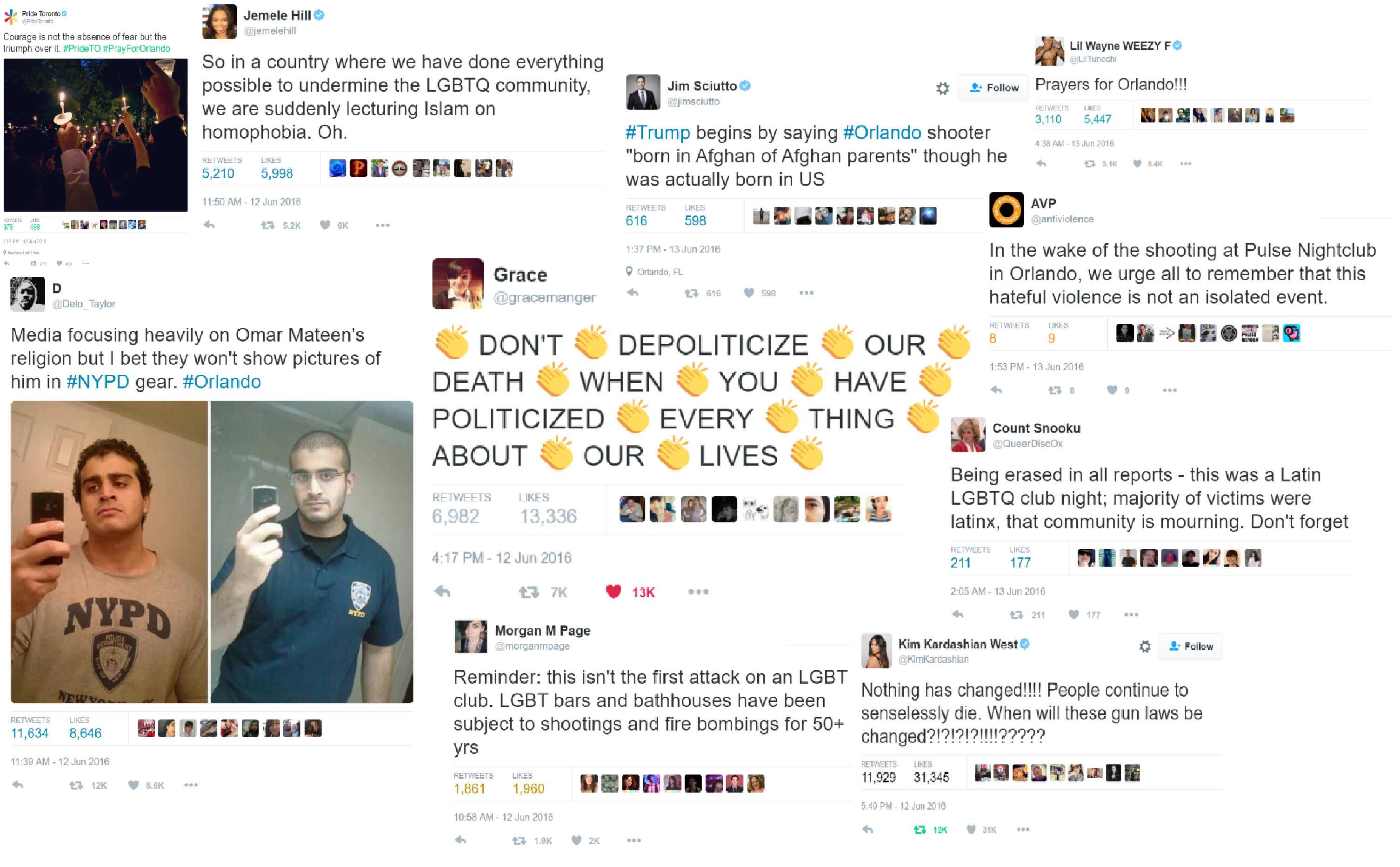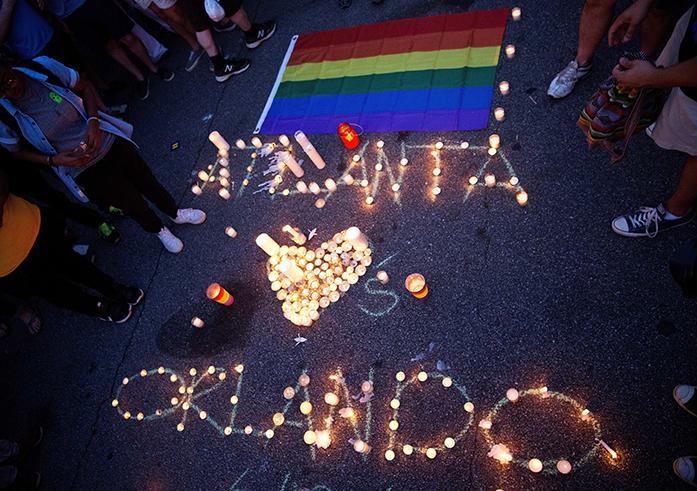Vivian Medithi
Sunday night’s terrorist attack at the Pulse nightclub in Orlando, Florida, which killed 49 and left another 53 wounded, will yield more of the same tired rhetoric we’ve heard countless times before. Questions will be asked such as “Who’s to blame?” “What should be done about guns?” “What can we do to prevent this from happening again?” If we’re lucky, there may be some type of legislation passed that would strong enough to mollify the masses but never strong enough to bring about significant change. There will be much talk about ISIS and the threat of radical Islam, lip service to mental-health issues, and next to no talk about the vulnerability of LGBTQIA+ communities of color.
The truth is that the state is the final decider of who lives and who dies. Philosopher Achille Mbembe coined the term necropolitics in 2003, reasoning that the “ultimate expression of sovereignty” is in the power to choose who is allowed to live and who the state marks for death (Duke University Press). For example, as an American citizen, I don’t have to worry about whether a drone strike will kill me during a normal day, but thousands of civilians in the Middle East are labeled as acceptable collateral by the U.S. government by virtue of geography.
Anyone can be a victim of gun violence, but not everyone is at equal risk of dying from gun violence. The underprivileged and marginalized, on axis of race, class, gender, sexuality, and ability, are more often than not victims of gun violence, while the perpetrators are statistically mostly white males (politicalresearch.org). Sunday night’s shooting wasn’t just an attack on queer people; according to the Puerto Rican state department, over 90 percent of those killed were of Latino descent (Reuters). Anti-LGBTQIA hate crimes are 18.6 percent of all hate crimes the FBI recorded in 2014, more than 1,000 separate incidents (ibtimes.com). Given the underreporting of hate crimes, as well as the difficulty of proving bias in alleged hate crimes, the real number is certainly higher. Anti-Latino violence has been on the rise for decades, with leaders in the Latino community critiquing enforcement-only policies and a political culture of anti-immigrant rhetoric. Necropolitics long ago determined that black and brown bodies across the globe are acceptable collateral damage.

That the shooter was of Afghan descent matters far less than that he was raised in the United States, a country with a long history of hate regarding both the Latino and queer communities. Omar Seddique Mateen may have murdered these people in the name of ISIS, but the state is equally culpable in these deaths. This is the natural result of a system created in an era in which women were property, black people were slaves, and queerness was a cardinal sin. When a mass shooting occurs, we are urged not to politicize death, told that guns aren’t to blame. Yet gun-lovers have no problem demonizing mental illness, and racists have no qualms blaming Islam (really, a roundabout way of blaming brown people). In the wake of the Pulse shooting, plenty of so-called “Christians” will pronounce Mateen the hand of God, passing divine judgment on the sinful. Death is never apolitical, because life is never apolitical. One death is a tragedy, a thousand is a statistic. For America, 50 deaths is simply business as usual.



